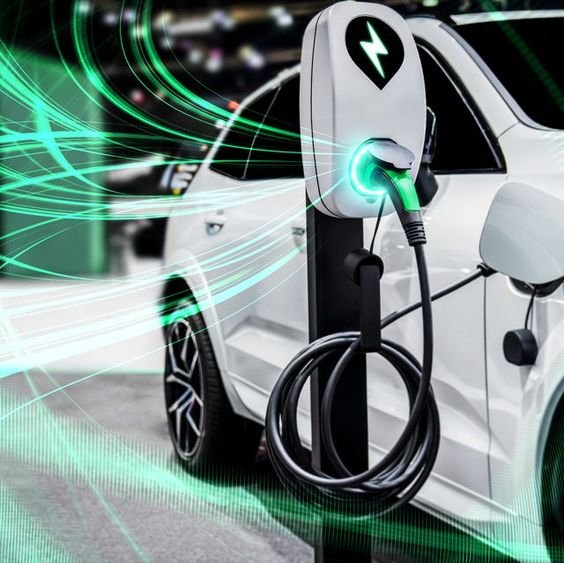
With the global shift towards sustainable living and environmentally friendly technologies, electric vehicles (EVs) have gained significant popularity. As more consumers opt for electric cars, the market for used EVs has also expanded.
However, purchasing a used electric vehicle comes with its own set of advantages and disadvantages.
This article explores the pros and cons of buying a used electric vehicle, helping potential buyers make an informed decision.
Pros of Buying a Used Electric Vehicle
- Cost Savings
Lower Purchase Price
One of the most compelling reasons to buy a used electric vehicle is the lower purchase price compared to a new one. EVs, like other vehicles, depreciate significantly in the first few years. This depreciation can translate into substantial savings for buyers who opt for a used model. For instance, a new electric car that costs $40,000 might be available for $25,000 or less after just a few years of use.
Reduced Taxes and Fees
In many regions, the taxes and registration fees for used vehicles are lower than those for new ones. This can further reduce the overall cost of acquiring a used EV.
- Environmental Benefits
Reduced Carbon Footprint
By purchasing a used electric vehicle, you are contributing to a reduction in the overall carbon footprint. Manufacturing new cars, even electric ones, involves significant energy and resource consumption. By choosing a used EV, you are extending the life of an existing vehicle and avoiding the environmental impact associated with manufacturing a new one. - Incentives and Rebates
Government Incentives
Some governments offer incentives or rebates for purchasing used electric vehicles. These incentives, which were initially aimed at new EV purchases, are now being extended to the used car market to promote broader adoption of electric vehicles. This can make buying a used EV even more affordable. - Lower Operating Costs
Cheaper Fuel Costs
Electric vehicles are typically much cheaper to operate than their gasoline counterparts. Electricity is generally less expensive than gasoline, and EVs are more efficient in converting energy into motion. This results in lower fuel costs over the life of the vehicle.
Maintenance Savings
EVs have fewer moving parts than internal combustion engine (ICE) vehicles, which translates to lower maintenance costs.
There are no oil changes, fewer fluids to replace, and less wear on braking systems due to regenerative braking.
This can result in significant savings on maintenance and repair bills.
- Depreciation
Slower Depreciation Curve
While new EVs depreciate quickly in the first few years, used EVs tend to have a slower depreciation curve. This means that the value of a used electric vehicle tends to stabilize, providing better value retention over time compared to new models. - Access to Advanced Technology
High-Tech Features
Many used electric vehicles come equipped with advanced technology and features that might be out of reach for buyers of new, budget-friendly cars. Features such as autonomous driving capabilities, advanced infotainment systems, and comprehensive safety packages can be found in used EVs at a fraction of the cost of new vehicles with similar features. - Availability of Certified Pre-Owned Programs
Certified Pre-Owned (CPO) Programs
Many automakers offer certified pre-owned programs for their electric vehicles. These programs provide additional peace of mind by offering extended warranties, thorough inspections, and other benefits. Purchasing a CPO used EV can combine the cost savings of a used car with the reliability assurances of a new one.
Cons of Buying a Used Electric Vehicle
- Battery Degradation
Battery Life Concerns
One of the most significant concerns with used electric vehicles is battery degradation. Over time, the battery in an EV loses its ability to hold a full charge, which can reduce the vehicle’s range. This degradation varies based on factors such as the age of the vehicle, the total mileage, and how the car was used and charged by previous owners.
Replacement Costs
Replacing the battery in an electric vehicle can be expensive. While battery prices have been falling, a new battery pack can still cost several thousand dollars.
Potential buyers need to consider the remaining life of the battery and the potential future expense of replacement.
- Limited Range
Older Models with Lower Range
Many older electric vehicle models have a more limited range compared to newer models. While modern EVs can often travel 250 miles or more on a single charge, older models may only offer a range of 80-150 miles. This limited range can be a significant drawback for those who need to travel longer distances regularly. - Charging Infrastructure
Availability of Charging Stations
Although the charging infrastructure for electric vehicles is rapidly improving, it may still pose a challenge, particularly for used EV buyers. Depending on the region, there might be limited access to public charging stations, which can be inconvenient for daily use or long trips.
Home Charging Setup
For optimal convenience, EV owners often need to install a home charging station. This can be an additional upfront cost that buyers need to consider.
Not all living situations (e.g., apartments or rental homes) are conducive to installing home chargers, which could limit the practicality of owning an EV.
- Technology Advancements
Rapidly Evolving Technology
The technology in electric vehicles is advancing rapidly. This means that used EVs, especially older models, may lack the latest features and advancements found in new cars. For instance, older EVs may not support the fastest charging speeds or the latest driver-assistance technologies.
Software Updates
While some manufacturers offer over-the-air software updates that can add new features and improve performance, not all older models are compatible with these updates. This could leave used EV owners with outdated technology and potentially less efficient vehicles.
- Resale Value Uncertainty
Future Depreciation
While used EVs generally have a slower depreciation rate compared to new ones, their future resale value can still be uncertain. As newer models with better technology and longer ranges become available, older used EVs may lose value more quickly. - Limited Availability
Market Availability
The market for used electric vehicles is still developing, and the availability of specific models may be limited. This can make it challenging to find the exact make and model desired, especially with preferred features and in a preferred condition. - Warranty Concerns
Expired Warranties
Many used EVs may no longer be covered under the original manufacturer’s warranty, especially if they are older models. While some components might still be under warranty, buyers should carefully check the coverage, especially for the battery and drivetrain.
Certified Pre-Owned Limitations
While certified pre-owned programs offer additional protections, they may come at a higher price and still have limitations on the warranty coverage. It’s important for buyers to understand what is and isn’t covered under these programs.
Buying a used electric vehicle presents both compelling advantages and notable drawbacks.
On the positive side, used EVs offer significant cost savings, environmental benefits, and lower operating costs. They also provide access to high-tech features and certified pre-owned programs that can offer additional peace of mind.
However, potential buyers must also weigh the disadvantages, such as battery degradation, limited range, and the challenges associated with charging infrastructure.
The rapid advancement of EV technology can also mean that used models may quickly become outdated. Additionally, uncertainties about future depreciation and warranty coverage can add to the complexity of the decision.
Ultimately, the decision to buy a used electric vehicle depends on individual needs, preferences, and circumstances.
Prospective buyers should carefully evaluate the specific model they are considering, including its battery health, range, and the availability of charging options.
By doing thorough research and considering both the pros and cons, buyers can make an informed choice that best suits their lifestyle and driving habits.
As the market for electric vehicles continues to grow and evolve, the options and opportunities for purchasing used EVs are likely to expand, providing even more choices and benefits for eco-conscious and budget-savvy consumers.
ALSO READ: Top 10 Most Anticipated Car Releases of 2024







